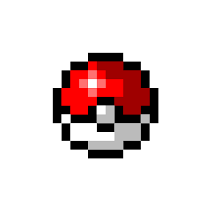"The Intro of Pokemon Moon as a Meta-Commentary on Video Games and Pokemon as a Whole"

Hey y'all. So, I figured there was a serious dearth of perspectives/opinions that would somehow reflect a serious introspection into the artistic merits that video games posit. After taking a couple years break from video games, I splurged on a New 3DS XL and bought Pokémon Moon. The introduction struck me with clear themes of post-modernism, existential loneliness, and the concept of who truly has agency in stories/identity from those stories. My goal, is to just write a quick piece that lets people see a little bit deeper into something, that I feel, is unappreciated by both art communities and video game communities alike (TL;DR at the bottom).The scene open ups with a video chat of a Professor talking about moving to the screen about Alola (I will typo these and names, be warned) region to experience the wide array of Pokémon there. We are instantly met with the concept of Pokémon being in plethora. We are then shifted to see the character that we selected, watching the screen. It should be noted that we select a "character" in the beginning, this plays into the concept that who we actually are is a role we play and that varies extensively from situation to situation, that the true self does not exist. We are then faced with three images, the one the professor was in, the newspaper on the desk, and the one that we are looking at (The physical screen of the 3ds) that subsumes the latter two. These three images indicate a separation in perspectives and brings into question the planes of observation when the camera pans to the newspaper and we watch a short clip that is used to introduce the games title, (note an obfuscated Pokémon winking/blinking at the girl that indicates a hidden baggage that we hold and watches us). It is when the mother asks Meowth to go get the character and the perspective is switched to Meowth's perspective that we understand the point of the introduction. The introduction introduces the game, but it sets us up into what it means to be in a video game. We watch a series of diverse elements presented to us and we enter this reality -fully (note by observing -becoming in all cases- a different type of viewer). This transformation into the viewer is something that only video games can capture, because films may let you voyeur, but they do not let you control. This point is emphasized when we see that the only Pokémon in the character's bedroom is a ditto, a Pokémon that takes the form of whichever Pokémon it is met with.This leads quite nicely into my next point, that Pokémon represent our ideal spiritual companions that allow us to never feel alone. The first island we are on has a temple with Pokémon and shows a perfect harmony between the people on the island, religion, and Pokémon. It should be noted that many cultures that are island and indigenous see their knowledge painted as folksy and spiritual, rather than scientific. This gets contrasted when you go up the path, past Route 1, and talk to a chubby man that says it's a miracle of SCIENCE that you can transfer Pokémon. The mixture that we are implicit in this story telling due to our control of it and watching of it, the ability of technology to transfer these Pokémon -which are spiritual elements, leads us to conclude that: because we enter the video game, we become a spiritual element that is an agent in the story, and thus a form of Pokémon for the game -i.e. a spiritual companion for the game. This means, that though our character possesses Pokémon, or elements of human companionship, the game takes hold of us -whether viewed as malicious or not is irrelevant to this analysis and for you to decide- and we become a Pokémon to the story, a spiritual entity that is accompanies the game, and gives life force/reason to the game. Another way to conceptualize this is the trope that Pokémon do nothing but when we don’t cast them out and play with them, this is the same way any video game operates, but us, the character that we chose, is also trapped under this system, which leads me back to my original point. However, this logic can be flipped. One could easily argue that the game Pokémon itself is actually a Pokémon relative to us, just the same as the little adorable creatures are in the game relative to NPC’s. This ambiguity is intended. It is the question of agency typical to post-modernism, do we become the story we observe or does the story become us? We see this idea of power and who really creates identity when so often trainers are paired with particular Pokémon that represent them, even gym leaders being broken down by “types.”TL;DR: We are Pokémon relative to the video game because of how the video game depends on us for the story and other factors above, or vice versa, but the ambiguity makes us question who has the power in video games, is it the players giving life and companionship to the story or vice versa? via /r/pokemon http://ift.tt/2qnJN9p
"The Intro of Pokemon Moon as a Meta-Commentary on Video Games and Pokemon as a Whole"
!["The Intro of Pokemon Moon as a Meta-Commentary on Video Games and Pokemon as a Whole"]() Reviewed by The Pokémonger
on
21:25
Rating:
Reviewed by The Pokémonger
on
21:25
Rating:


No comments